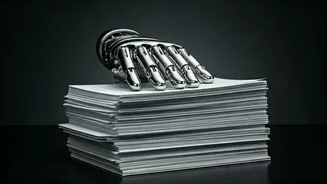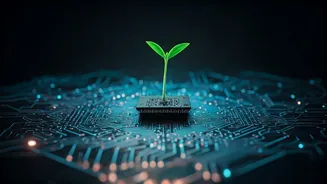AI's Interview Debut
The focal point of the recent online discourse was a Reddit post that went viral. In this post, a job seeker described a rather unsettling encounter: an
entire interview conducted by an AI bot. The candidate's unsettling experience was shared and swiftly gained traction within the online community. This scenario brought the reality of AI's presence in recruitment into sharper focus, triggering debate and apprehension regarding the human element in job evaluations. The narrative detailed the impersonal nature of the interaction, where the candidate was subjected to scripted questions and automated assessments, revealing a significant shift in the recruitment process.
Concerns and Apprehensions
The narrative brought forth by the Reddit user served as a catalyst for a discussion surrounding the implications of AI-driven job interviews. Numerous users expressed their anxieties regarding the lack of human interaction, which is crucial for gauging cultural fit and soft skills. The automated nature of these interactions was a significant point of concern for many, as it raised questions about the system's ability to fairly assess a candidate's personality, communication, and overall suitability. The consensus among the community leaned towards a preference for human-led interviews, emphasizing the value of human judgment, empathy, and the capability to engage in spontaneous and dynamic conversations. The human touch, it was argued, provided essential elements often missing in algorithmic assessments.
Automated Process Dissected
The viral post illuminated the mechanics behind AI-conducted interviews. The candidate likely encountered an automated system designed to evaluate applicants based on pre-programmed criteria, which may encompass aspects like facial expressions, tone of voice, and the content of answers. The absence of a human interviewer meant that the candidate's responses were filtered through an algorithmic lens, designed to identify patterns and predict success or failure based on the pre-defined metrics. This raises concerns about the potential biases that might be embedded within such algorithms. The parameters used could unintentionally discriminate against certain demographics or personality types. In contrast to a human interviewer, there isn't an opportunity to adjust the questioning or offer contextual understanding.
Impacts on Job Seekers
The adoption of AI in the recruitment process can have profound effects on job seekers. The shift towards automated interviews demands that candidates adapt their approach. They must optimize their responses for algorithmic analysis and tailor their communication to meet the system's specific criteria. This places an extra burden on job seekers, who must not only demonstrate their qualifications but also prove that they can navigate and impress these automated systems. Furthermore, such systems might inadvertently exclude candidates who lack access to the technologies or resources needed to successfully navigate the system, creating disparities and potentially narrowing opportunities.
The Future of Hiring
The debate around AI-led interviews indicates a larger discussion about the future of hiring. As AI continues to evolve, it is becoming increasingly integrated into recruitment processes, from the initial screening stages to more in-depth evaluations. This trend underscores the significance of transparency, with clear explanations of how AI tools are being utilized. There is an emerging call for a more human-centered approach that blends the efficiency of technology with human insights. This entails using AI to automate repetitive tasks, while reserving the human touch for critical elements like judging cultural fit and candidate's emotional intelligence.











